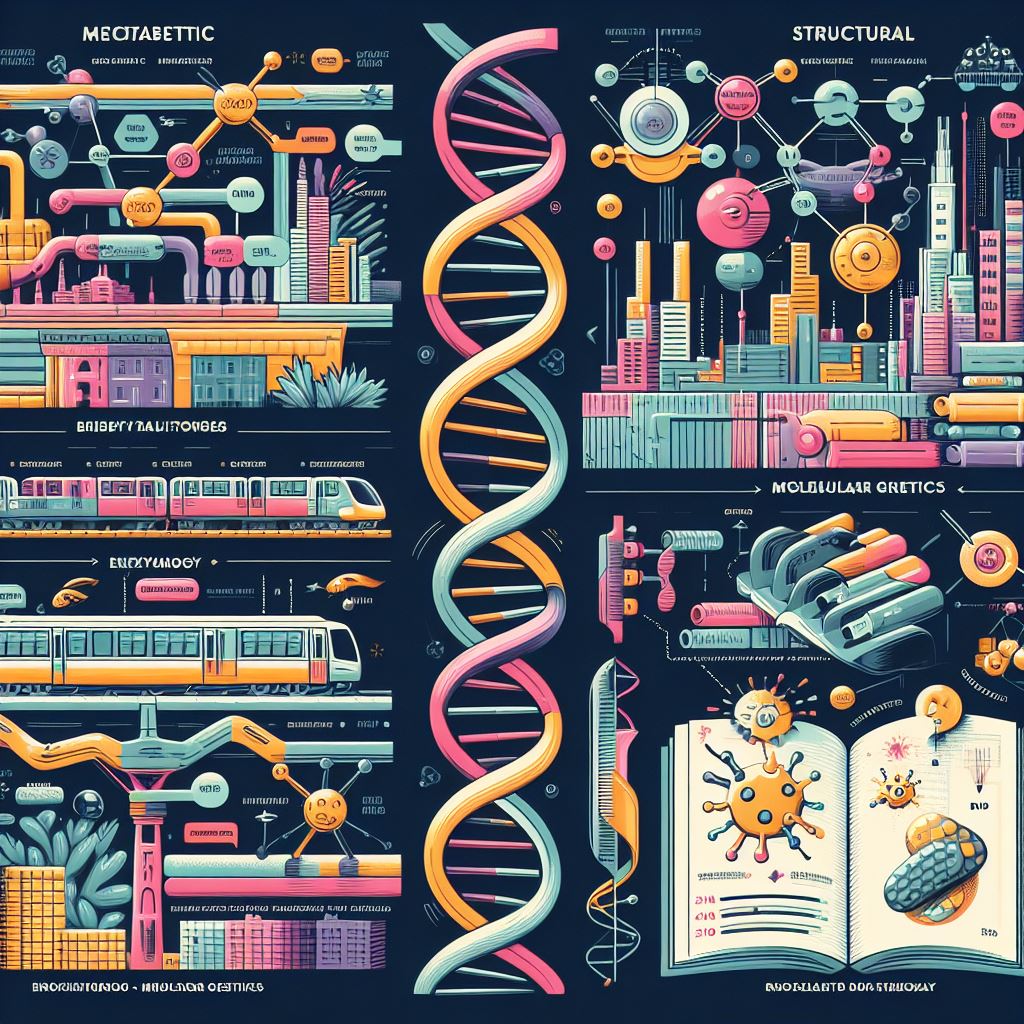
Understanding the Four Main Types of Biochemistry
Biochemistry, often referred to as the "chemistry of life," is an intriguing field that dives into the molecular mechanisms behind the most complex of biological systems. Whether you're a student, researcher, educator, or merely a curious soul, this article promises a detailed and engaging exploration into the four primary branches of biochemistry: metabolic, structural, molecular genetics, and enzymology.
1. Introduction to Biochemistry
Biochemistry bridges the gap between biology and chemistry, focusing on the chemical processes within and related to living organisms. This is a realm where molecules like DNA, RNA, proteins, and lipids become the main characters, playing pivotal roles in the countless reactions and interactions that sustain life.
Short-tailed keyword: Biochemistry
2. Metabolic Biochemistry
The Heartbeat of Cells
At its core, metabolic biochemistry is about understanding the myriad pathways and transformations of molecules in living organisms. It's like deciphering the metro map of a bustling city, but instead of trains and stations, you have biochemical reactions and compounds.
Highlights:
- Metabolic pathways are the sequences of chemical reactions within cells.
- These pathways can be anabolic (constructive) or catabolic (destructive).
Example: The Krebs cycle, an essential metabolic pathway, involves a series of reactions that produce energy through the oxidation of acetate derived from carbohydrates, fats, and proteins into carbon dioxide.
Importance in the Scientific Community
Metabolic biochemistry is invaluable for its insights into diseases like diabetes or metabolic syndromes. It's also critical in pharmacology, where understanding metabolic pathways can help design drugs with maximum efficacy and minimal side effects.
Long-tailed keyword: Role of each biochemistry type
3. Structural Biochemistry
Delving deep into the structure and functions of biological molecules, structural biochemistry is all about determining how molecules are built and how they interact.
Highlights:
- The study involves techniques like X-ray crystallography and NMR spectroscopy.
- It provides insights into the 3D arrangement of atoms in biomolecules.
Case Study: The determination of the DNA double helix structure by James Watson and Francis Crick in 1953. This groundbreaking discovery, central to structural biochemistry, paved the way for modern genetics.
4. Molecular Genetics
Molecular genetics hones in on genes and their expressions. It's like reading the manual of life, where genes are the instructions, and their expression determines how life functions.
Highlights:
- Understand the heredity and variation in organisms.
- Explore mutations, gene interactions, and genome structure.
Quote: "Genetics is about how information is stored and transmitted between generations." - Dr. Francis Collins, Director of the National Institutes of Health
5. Enzymology
Unraveling Nature's Catalysts
Enzymology dives into the world of enzymes, studying their kinetics, mechanisms, and regulation. These incredible molecules speed up reactions, sometimes by a factor of a million or more!
Example: The enzyme "rubisco" plays a critical role in the process of photosynthesis, capturing carbon dioxide from the atmosphere.
Interconnectedness of Biochemistry Branches
All these branches, though distinct, are intricately connected. For instance, enzymes (enzymology) play roles in metabolic pathways (metabolic biochemistry), and their structure (structural biochemistry) can affect their function.
Short-tailed keywords: Enzymology, Molecular genetics
Recent Advancements
Like every science, biochemistry is ever-evolving. Recent breakthroughs include advances in CRISPR technology (gene editing) and the discovery of new metabolic pathways that could be potential drug targets.
Conclusion
Biochemistry offers a fascinating lens to understand life at its most fundamental level. As we've explored the four main branches, it's evident that they not only provide a foundation for modern science but also hold the keys to many of our pressing medical and environmental challenges.
Research Reference:
- Nelson, D. L., & Cox, M. M. (2017). Lehninger principles of biochemistry. Macmillan Learning.
- Berg, J. M., Tymoczko, J. L., & Gatto, G. J. (2015). Stryer L: Biochemistry. WH Freeman & Co.
- Various articles from journals like "The Journal of Biochemistry", "Biochemical Journal", and "Annual Review of Biochemistry".


